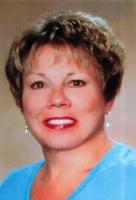SALEM – One of the tools the city wants to use to create more places to live during a housing crunch would be to change rules for accessory dwelling apartments so they can be rented after a family member or caregiver no longer lives in them.
The proposed changes generated a packed City Council Chambers in City Hall for a joint public hearing between the council and the Planning Board Monday night.
It wasn’t that long ago that Salem crafted an ordinance to allow for so-called in-law apartments.
But in just a year and a half, the new rules created just a handful of accessory apartments, nowhere near enough to meet the city’s housing needs in the coming years.
Monday served as the start of a process to change the accessory dwelling unit ordinance to allow homeowners to create these accessory apartments that can be rented out to others. Under the proposed rule change, only one new in-law apartment would be allowed per house lot. The property must be owner occupied, under the proposed rule changes.
While there would be no affordability restrictions, officials said in-law apartments could spark the creation of more affordable housing without the need for a building boom.
“Here is an in-grown opportunity,” said Planning Board member Bill Griset. “It’s here.”
Councilor-at-Large Tom Furey, the liaison to the Planning Board, was “very excited” by the idea.
“I truly believe we should encourage longer-term opportunities,” Furey said.
Mayor Kim Driscoll said the hearing was just a first step, and the large turnout showed the importance of the idea.
Driscoll outlined the housing need, noting that Salem schools ended the year with 238 homeless students. Many households headed up by women are living below the poverty line.
Driscoll described the need that has been generated through housing forums and studies in recent years. About half of the city’s homes are low income, and 10 percent are considered moderate income, and the city needs about 2,700 units in the coming years to meet the demand.
“As housing becomes more expensive, the city becomes less diverse,” said Tom Daniels, the city’s Planning and Community Development director, about the possible loss of diversity as housing becomes more expensive.
Senior Planner Amanda Chiancola said residents are concerned about being priced out, traffic and the lack of on-street parking.
Chiancola described what these accessory apartments might look like. They would be self-contained, can be attached or detached, and it can be dismantled without affecting the rest of the home.
“And they tend to rent for below-market rent,” Chiancola said. They would not be allowed to be sold separately.
Who benefits, Chiancola said, are seniors and tenants who make moderate incomes and homeowners who chose to create them, plus seniors and empty nesters who have a room to spare that can be converted.
In January 2018, the city created an ordinance for accessory dwelling units, but limited them to caretakers and family members with the requirement they be dismantled when they would no longer be occupied by those people.
The ordinance change would allow accessory dwelling units to be created in all residential zones. It would remove tenant restrictions, require owner occupancy of the property for two years and prohibit short-term rentals of less than 30 days.
The in-law apartments could not be larger than 800 square feet without a special permit.
If the proposed in-law apartment meets the dimensional requirements, has on-site parking and does not require any tree removal, it could be constructed by right with a building permit.
“The way I interpreted this, they can sell it unrestricted,” said Ward 5 Councilor Josh Turiel, concerned about what may happen if a property is sold.
Driscoll said the idea of the two-year owner-occupied requirement is to avoid people creating new apartments then flipping them.
Turiel favored all units going through a special permit process, not simply by right “to make sure there is always oversight.”
Council President Steve Dibble wondered how many people this ordinance might attract to the city.
Ward 1 Councilor Robert McCarthy suggested the Derby Street neighborhood would be burdened, because of a lack of off-street parking.
Driscoll said there would be no affordability component, because owners have to spend money to create the units. However, they tend to be rented below market rates.
“This is an option for seniors,” said Planning Board member DJ Napolitano, speaking in favor.
As to the notion that all new in-law apartments would require a special permit, Planning Board Chair Ben Anderson said this would be a hurdle.
“You have got to make it attractive,” Anderson said. “There is a crisis.”
Joe Riley, who heads up consumer banking for Salem Five Bank, spoke in favor of the ordinance, saying it is becoming increasingly hard to recruit and retain workers who can live and work in Salem. He said a recently promoted assistant branch manager saw her rent jump from $1,500 to $2,200 a month, eating up her raise.
The general manager of the Hawthorne Hotel, Salem native Claire Kallelis, spoke in favor, noting that her staff and others in the hospitality industry, are having a hard time finding places to live and work in the city.
“We are in a crisis right now,” she said. There is not always the ability for the hotel to raise its prices because the hotel has to stay competitive, she said.
“Make sure you pass this ordinance so Salem residents of all ages can afford to live in Salem,” said Patricia Zaido, co-chair of the Salem for All-Ages Task Force.
“This is actually about people more than anything,” said Jeff Cohen, who serves as co-chair of the city’s No Place for Hate Committee. He spoke about his mother who had a massive stroke who needs round-the-clock care. “It would kill her to go into a nursing home,” he said. His property has plenty of room and plenty of parking.
“I have an idea I can do this next year because of the new regulations,” said Cohen, who said the in-law apartment would allow him to hire a woman to look after his mother.
“On her behalf, I hope you will consider it,” Cohen said.
As of 9:40 p.m., the City Council started to hear opponents of the ordinance who spoke about concerns about increased density and that the ordinance will not solve the problem. Action by the council was not known as of press time.
Staff writer Ethan Forman can be reached at 978-338-2673, by email at eforman@salemnews.com or on Twitter at @TannerSalemNews.













